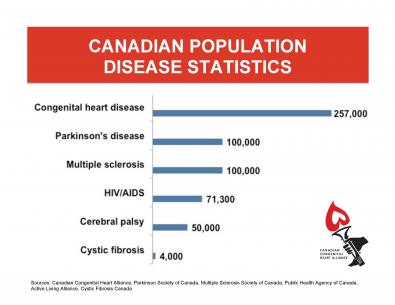Study: Adults with CHD at considerably higher risk of stroke
Adults with congenital heart defects at considerably higher risk of stroke
Wednesday, 25 Nov 2015 12:31
|
A study published in Circulation has shown adults with congenital heart defects to have much higher rates of stroke, compared to the general population. The researchers from McGill University, Montreal, Quebec, Canada analysed stroke data on 19,638 congenital heart disease patients between the ages of 18 and 64, and compared them with that of the general population of Quebec, Canada. Their aim was to find the frequency, risk and strongest predictors of stroke. Their results include:
“We knew there was a connection between heart failure and stroke in patients with heart defects, but we were surprised to discover it was the strongest predictor,” says Ariane Marelli, the study’s senior author and professor of medicine at McGill University, Montreal, Quebec, Canada. “Our study also suggests that other well-known risk factors for stroke, such as irregular heartbeat and high blood pressure may be under-detected in patients born with a heart defect,” says Jonas Lanz, first author of the study and research fellow at McGill University. Because adults with heart defects are more susceptible to strokes, Marelli stressed the importance of regular visits to a cardiologist to help reduce the risk through timely detection and treatment of modifiable risk factors. “Patients, their families and friends should also learn the F.A.S.T. signs (facial weakness, arm weakness, speech problems and time) to recognise stroke and understand how to get professional medical help quickly if they believe they are having a stroke,” says Marelli. CIRCULATIONAHA.115.011241Published online before print November 23, 2015, doi: 10.1161/CIRCULATIONAHA.115.011241 |
About the Author
Upcoming
Sorry, there are no posts at this time.


